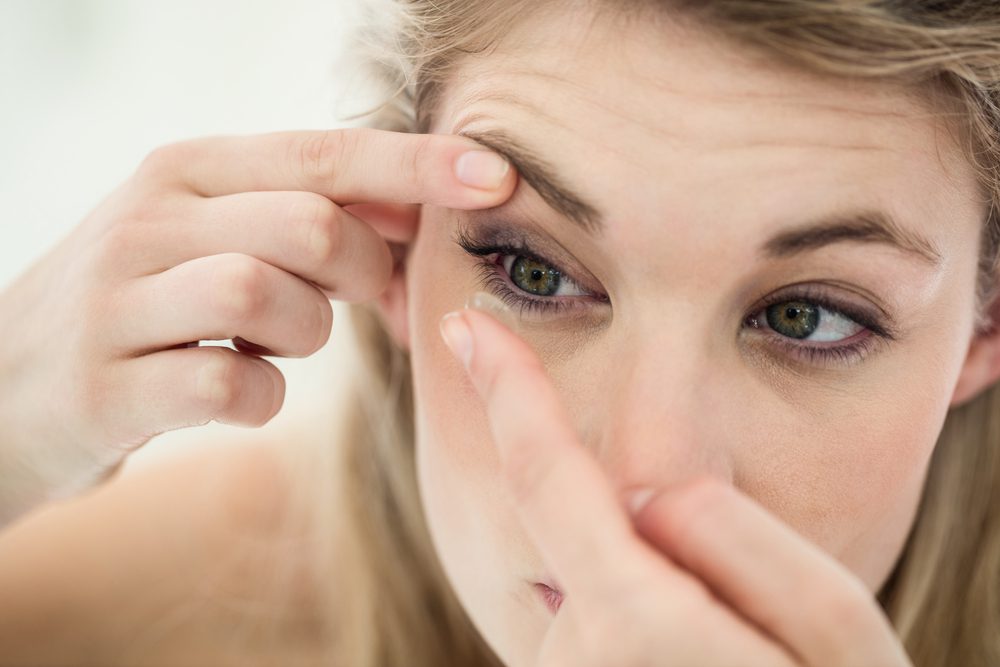
Using contact lenses
Although it’s more of a necessity than a habit, wearing contact lenses might put your health in danger. That’s because the novel coronavirus can be transmitted through mucous membranes, which means your eyes are also a weak spot, apart from your nose and mouth. More than that, if you use contact lenses, you have a higher risk of developing eye infections such as conjunctivitis caused by bacteria, viruses, and fungi. This includes the coronavirus.
“This is especially true if contact lens-wearers do not practice good hygiene such as not properly cleaning their lenses, sleeping in contacts, not washing their hands, or extending the wear of their contacts past the recommended date,” says Lee. “Try replacing contact lenses with glasses. Not only does this lower your chances of transmission, glasses can also act as a protective barrier against aerosol transmission.”
Glasses can protect you from droplets released by a sick person “but if you’re wearing contacts, the respiratory droplets can potentially get into your eyeballs,” Lee says.
Sharing cosmetics
Just like contact lenses, cosmetics that come into contact with your eyes can pose a threat to your overall health, not only your eye health. “Coronavirus can be found and transmitted through ocular secretions, like tears, so it’s important not to share eye drops or cosmetics with family members or friends,” says Lee. “It’s possible for the tip of the eye dropper or mascara to be contaminated by coming in contact with the ocular secretions of someone who is COVID-positive.”
Speaking of sharing, here are 7 Risky Activities You Shouldn’t Be Doing With Friends Right Now!

Touching your face
This is something that the CDC, WHO and international health experts have strongly advised against. Unfortunately, it’s something most of us do without realizing it, so not touching our faces is definitely not an easy task. According to studies, people touch their faces more than sixteen times in an hour!
If keeping social distancing and avoiding people who are sneezing, sniffing or coughing has become a new norm, avoiding touching our faces is a different story. “Given the number of surfaces we touch throughout the day, touching your face and/or eyes can increase the chances of a virus on your hands being transferred into your body,” says Vandana A. Patel, MD, clinical advisor for online pharmacy Cabinet. “Be aware of reflexive habits to touch your face, such as scratching an itch or moving stray hairs, and try to avoid it the best you can.”
Relying on takeout and delivery
During the shelter-in-place and self-quarantine period, many people started ordering more to limit their trips to the supermarket or outside, in general. If you’re still doing it now, after the lockdown measures have been lifted, then you should know you’re still in danger of catching the virus if you don’t comply with the recommended hygiene rules.
“When you order food from outside your home or go to the grocery store, you interact with numerous items that others have touched—these include cardboard boxes, paper bags, and plastic containers,” says Patel. “The coronavirus can stay on hard surfaces for days, so ensure that you’re careful about where you set down grocery or take out bags, and wash those surfaces and your hands thoroughly after bringing them home.” See some other Things You’ll Never Want to Bring Inside Your Home Again After the Pandemic Is Over.























